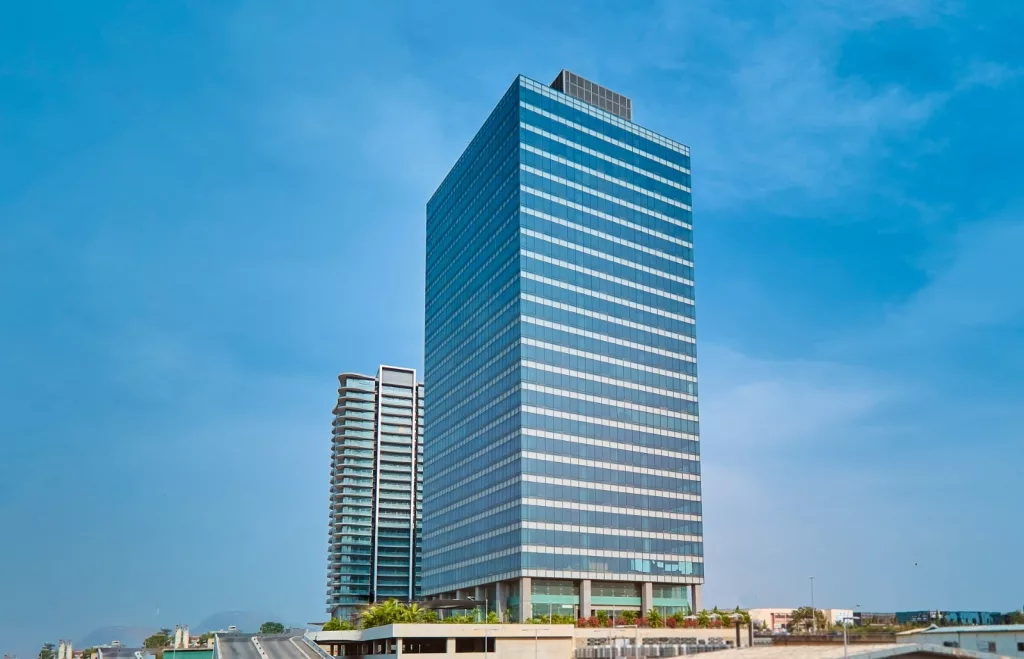Boosting Nigeria’s Creative Economy and Tourism: Strategic Interventions

Strategic Interventions to Boost Nigeria’s Creative Economy and Tourism
Estimated Reading Time: 7 minutes
Key Takeaways
- The Nigerian Minister of Arts, Culture, Tourism, and Creative Economy, Hannatu Musa Musawa, introduced strategic interventions for revitalizing creative and tourism sectors.
- Key initiatives include investment in digital infrastructure, establishment of creative hubs, strengthening of copyright enforcement, and upgrading tourism infrastructure.
- The Motherland 2025 project aims to promote Nigeria as a cultural and tourism hub.
- Strategic partnerships intend to enhance funding and infrastructure for these sectors, notably the collaboration to redevelop the National Theatre in Lagos.
- By addressing existing challenges, Nigeria aims to significantly boost its tourism contribution to GDP.
Table of Contents
- Introduction
- Investment in Digital Infrastructure
- Establishing Creative Hubs and Fashion Incubation Centers
- Strengthening Copyright and Intellectual Property Enforcement
- Upgrading Tourism Infrastructure
- Data-Driven Policy Making
- Motherland 2025 Project
- Strategic Partnerships for Development
- Conclusion
- FAQ
Introduction
In recent developments, Hannatu Musa Musawa, the Nigerian Minister of Arts, Culture, Tourism, and Creative Economy, unveiled comprehensive strategic interventions aimed at revitalizing Nigeria’s creative economy and tourism sectors. Addressed during the 2025 Ministerial and Sectoral Retreat in Abuja, these initiatives reflect a national commitment to tackle long-standing challenges such as limited funding, poor infrastructure, and security concerns that hold back these industries. Their potential is enormous, with tourism contributing less than 4% to Nigeria's GDP — well below the global average of around 10%. Effective implementation of these strategic plans could significantly uplift these sectors 1.
Investment in Digital Infrastructure
One of the pillars of Nigeria’s strategy is a strong emphasis on investment in digital infrastructure. This investment aims to enhance content production and global distribution in the creative sectors through:
- Upgraded film studios: Improving technical capabilities for better content creation.
- New digital platforms: Facilitating distribution of creative works both locally and internationally.
These developments will help producers reach wider audiences and improve the profitability of Nigeria's film and entertainment industries, addressing the technological gaps that have hindered progress in the past 3.
Establishing Creative Hubs and Fashion Incubation Centers
To foster talent and innovation within the creative sectors, the Nigerian government is establishing creative hubs and fashion incubation centers. These hubs will serve as:
- Nurturing grounds for creatives: Providing resources and mentorship for young artists and designers.
- Platforms for collaboration: Encouraging networking among artists of various disciplines, enhancing collective growth and innovation.
This proactive approach aims to stimulate local creativity and entrepreneurship, thus enriching Nigeria’s cultural landscape 5.
Strengthening Copyright and Intellectual Property Enforcement
Strengthening copyright and intellectual property enforcement is critical for protecting creators and encouraging investment in the creative industries. The government will focus on:
- Implementing robust laws to combat piracy: This is essential to ensure that creators receive fair returns for their works.
- Educating artists on intellectual property rights: Creators will gain knowledge on how to protect and monetize their works effectively.
With reinforced IP frameworks, stakeholders will feel more secure in investing in Nigeria’s creative economy, leading to greater overall growth 4.
Upgrading Tourism Infrastructure
Another essential aspect of these strategic interventions is the upgrading of tourism infrastructure. By enhancing facilities, the Nigerian government can improve the overall visitor experience. Key areas of focus include:
- Heritage sites and museums: Revamping these crucial attractions to ensure they meet global standards.
- Creating modern amenities in tourist hotspots: This will attract both domestic and international tourists, enhancing the overall tourism experience.
A robust tourism infrastructure is vital for increasing visitor numbers and, consequently, economic contributions from the sector 6.
Data-Driven Policy Making
Data-driven policy making is a critical innovation in Nigeria's strategic plan. By focusing on data analytics, the government aims to:
- Establish clear job-creation targets: Identifying specific needs for different sectors within the creative economy.
- Monitor the impact of policies in real-time: This adaptive approach allows for timely adjustments based on feedback and results.
Such data-centric strategies will enable better alignment between government initiatives and industry needs, ensuring more efficient resource allocation and the ultimate goal of sustainable growth 2.
Motherland 2025 Project
The Motherland 2025 project is a significant initiative launched in collaboration with Discover Motherland Africa. Its goal is to position Nigeria as a central hub for African culture, tourism, and investment. Key components of this expansive vision include:
- The Motherland Travel Hub: This will facilitate better travel options and promote cultural exchanges.
- Citizenship by Investment programs: Aimed at engaging the diaspora and encouraging foreign investment in Nigerian cultural assets.
- Diaspora City: A project focused on reconnecting the Nigerian diaspora with their cultural heritage.
Through these innovative programs, Nigeria aims to enhance its international appeal and achieve economic growth driven by cultural engagement 2.
Strategic Partnerships for Development
Strategic partnerships with financial institutions and private entities are vital for advancing Nigeria's creative and tourism sectors. Efforts currently underway include:
- Collaboration with the Central Bank of Nigeria to redevelop the National Theatre in Lagos, transforming it into a cornerstone of the country's creative and tourism hub.
- Increased corporate sponsorship of cultural festivals to attract international tourists, highlighting the rich cultural tapestry of Nigeria.
Such partnerships can enhance funding avenues, facilitate infrastructure development, and create an immersive experience that appeals to a global audience 4.
Conclusion
Under the leadership of Minister Hannatu Musa Musawa, Nigeria is embarking on a comprehensive strategy to bolster its creative economy and tourism sectors. By addressing issues of infrastructure deficits, strengthening intellectual property rights, and integrating innovative programs that engage the diaspora, Nigeria aims to emerge as a leading force in Africa's creative and tourism landscape by 2030. This holistic approach not only promises to enrich Nigeria’s cultural capital but also positions the nation for significant economic diversification.
FAQ
1. What is the main goal of Nigeria's strategic interventions?
The main goal is to revitalize Nigeria’s creative economy and tourism sectors by addressing long-standing challenges and maximizing the country's cultural assets.
2. How will the investment in digital infrastructure help?
It will enhance content production and facilitate global distribution, making Nigerian creative works more accessible to international audiences.
3. What role do creative hubs play in this strategy?
Creative hubs will nurture local talent, provide resources, and encourage collaboration among artists, promoting innovation and entrepreneurship.
4. Why is copyright enforcement important?
Strong copyright enforcement protects creators from piracy and fosters a climate of investment in the creative sectors.
5. How does the Motherland 2025 project contribute to tourism?
The project aims to reconnect the diaspora with their heritage while driving tourism through various innovative programs.
For more detailed information, you can explore the referenced sources below:
- Strategic Plan to Elevate Creative Economy and Tourism
- Motherland 2025 Initiative
- Interventions to Boost Creative Economy and Tourism
- Tourism Funding in Nigeria
- Focus on Infrastructure Policy
- Cultural Tourism Development
- Minister Musawa Unveils Strategic Interventions
- IP and Tourism Development in Nigeria











